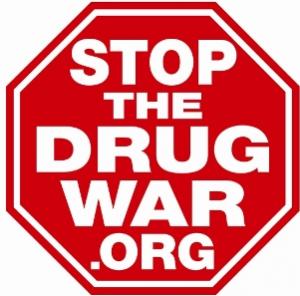
UN to Release Annual “World Drug Report” While Reformers Rally Worldwide; Groups Accuse Singapore of Using False Drug Use Data to Justify Death Penalty
Washington, DC—(ENEWSPF)—June 26, 2018
Contact: David Borden
A growing coalition with over 140 organizations as of this writing has condemned President Trump’s call to institute the death penalty for drug offenses. A copy of the statement, which was organized by the US-based NGO StoptheDrugWar.org, is online here.
The statement was submitted to the UN Office of the High Commissioner on Human Rights, to be considered for inclusion in a report on the death penalty being presented to the General Assembly next fall. David Borden, executive director of StoptheDrugWar.org and the statement’s author, explained, “We decided to release the statement at this time because of the immigrant family separations and the US’s withdrawal from the Human Rights Council, as another example of President Trump’s assault on human rights.”
The statement also coincides with the June 26 release of the annual UN World Drug Report, and with the annual Support Don’t Punish Global Day of Action for health- and human rights-based approaches to drug policy.
Among the statement’s signatories are the National Organization for Women (NOW), the Latino Commission on AIDS, the William C. Velasquez Institute, Death Penalty Focus, the National Association of Social Workers, and Housing Works.
The US has never brought a death penalty case for a drug offense, but following the president’s call for executions last spring, Attorney General Sessions sent a memo to prosecutors urging them to consider seeking the death penalty in some cases.
The statement argues, with references, that the president’s claims of success for drug death penalty approaches in other countries is “premised on falsehoods.” It notes that the world’s leading executors for drug offenses, China and Iran, have scaled back their use of executions for drug offenses; and accuses Singapore’s government of using “faked data” to justify their drugs death penalty.
The statement also makes note of President Trump’s suggestion that police officers should bash suspects’ heads on car door frames when arresting them, made during a police officers’ convention in July 2017; and his repeated calls for violence against protesters at his rallies during the presidential campaign, recorded on video on seven different occasions.
The statement also notes Trump’s praise for Philippine President Rodrigo Duterte’s brutal campaign of extrajudicial drug war killings, which Duterte administration figures suggest has claimed 20,000 lives to date. The statement has strong representation in the Philippines as well as the Filipino American community, with more than ten endorsing organizations including the iDEFEND human rights coalition, the Free Legal Assistance Group (FLAG), the Philippine Jesuit Prison Service Foundation, and the Filipino American Human Rights Alliance (FAHRA).
The statement calls on Congress to repeal the US’s never-used drugs death penalty statutes; to enact bipartisan sentencing reform legislation that is pending in Congress; and to pass legislation sponsored by Senators Ben Cardin (D-MD) and Marco Rubio (R-FL) to impose human rights conditions on some aid to the Philippines while funding public health work and human rights advocacy.
Borden said, “We are committed to recognizing if and when the Trump administration takes good steps in drug policy or criminal justice. Recently the president released Alice Johnson, a 63-year old grandmother who had been imprisoned since 1996 on a drug offense, and he suggested there could be many more pardons. He has offered tentative support for legislation to give formal federal permission to states enacting marijuana legalization, though Republican leadership has blocked the bill from moving. We hope the president follows through on both these promises. In the meanwhile, however, the overall Trump administration record in the drug war is a horrific one.”
The full text of the statement and signatory list is online here.
Source: www.drugpolicy.org








